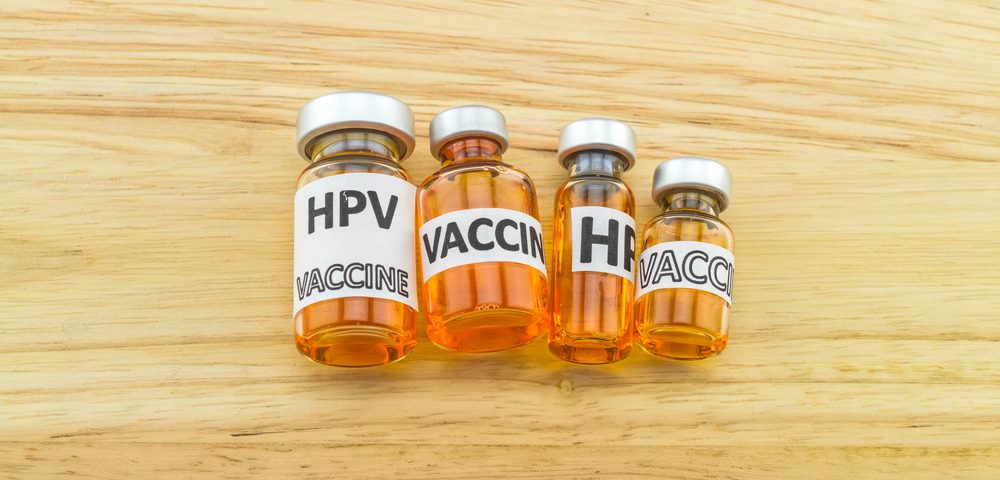In October 2016, the U.S. Food and Drug Administration (FDA) approved the two-dose schedule for the human papillomavirus (HPV) vaccine, which was later recommended for boys and girls ages 9 to 14 by the Advisory Committee on Immunization Practices (ACIP).
Now, based on data from several clinical trials, the American Cancer Society (ACS) has endorsed the ACIP’s updated recommendations.
The updated schedule is published in the ACS’s annual screening update, in the CA: A Cancer Journal for Clinicians, and is titled “Cancer screening in the United States, 2017: A review of current American Cancer Society guidelines and current issues in cancer screening.”
Vaccination with the most most recent 9-valent HPV vaccine, which protects from seven high-risk HPV types, could prevent a total of 28,500 cases of cancer. But despite strong evidence of safety and effectiveness, the rates of vaccination in the U.S. remain very low, with only 28 percent of boys and 42 percent of girls ages 13 to 17 receiving the recommended three doses in 2015.
But data from seven studies reviewed in the ACS’s screening update has suggested that two doses of the vaccine in individuals ages 9 to 14 years is as effective as three doses in young women ages 16 to 26.
Therefore, a two-dose schedule could reduce the vaccination costs and increase vaccination rates, decreasing the incidence and mortality from HPV-associated cancers and cervical precancerous lesions in a cost-effective manner.
“In the past several years, studies have shown the vaccine is even more effective than expected,” Debbie Saslow, PhD, senior director of HPV Related and Women’s Cancers for the American Cancer Society, said in a news release. “This new two-dose regimen is easier to follow, and we now know is very effective in preventing HPV, which is linked to a half dozen types of cancer.”
As a result, the ACS now endorses the ACIP’s updated recommendations, suggesting that boys and girls who are vaccinated before they turn 15 should get it in two doses administered six to 12 months apart. For young people ages 15 to 26, a three-dose schedule is still recommended for full protection.
The ACS also noted that “providers should inform unvaccinated men and women ages 22 to 26 years that vaccination may not be effective in lowering their cancer risk.”

